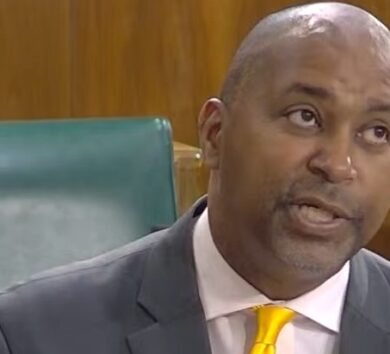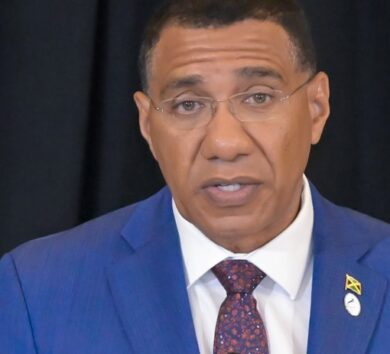
Jamaica’s national response to the second wave of the coronavirus (COVID-19) outbreak enters a new dimension as the Ministry of Health and Wellness pushes for greater access to Remdesivir.
The broad-spectrum antiviral medication, which is developed by the biopharmaceutical company Gilead Sciences, has reduced the COVID recovery time in a significant number of infected patients.
In a statement on Wednesday (Ooctober 14), the ministry noted that amid increased public appeal it has already begun through the National Health Fund (NHF), to procure supplies of Remdesivir for the treatment of patients in government facilities.
The ministry further explained that its decision is rooted in available scientific evidence, particularly from the New England Journal of Medicine, that shows it may be effective in reducing the length of an in-hospital stay by five day. It is also said to reduce mortality rates by four per cent.
The government body argued, however, that like countries, Jamaica’s procurement of Remdesivir is for use under ‘Emergency Use Authorisation’ as the drug has not received full approval.
“In Jamaica, while we await full registration approval in the country of origin, the drug can be used under the controls of a study or under an emergency license. The Food and Drug Regulation of 1975, Regulation #73 (Jamaica), makes provision for the Honourable Minister of Health to: ‘grant an emergency license (permit) to a practitioner for the importation of a new drug, … if that drug is required for the treatment of an urgent case, and the Minister is satisfied that it is in the best interest of the patient for whom the drug is intended, that the importation be effected without delay’,” declared the Ministry in an issued press release.
In the meantime, as the island confirmed 79 new coronavirus cases and five new deaths on Wednesday—bringing the national tally to 7,989 and 151 respectively—the ministry has issued a number of emergency permits for the importation of Remdesivir in the interim.
“This requires a letter from the prescribing physician indicating the need for this drug and including recognition of the responsibility for prescribing an unapproved drug as well as the consent of the patient to take an unapproved drug,” the health ministry continued.
What’s more, the ministry has mandated that the prescribing and administering of the drug comply with the following conditions:
- informed consent must be obtained;
- that inventory control systems be put in place at the facilities to ensure that records of the dispensed product and patient information are maintained – similar to that used for controlled substances;
- that the drug be administered to hospitalised patients who are closely monitored; and
- that serious adverse events must be tracked and reported to the Pharmacovigilance Unit of the Standards and Regulations Division of the MOHW, using the PharmWatch Drug Monitoring Form, located on the MOHW website.
“Clinical outcome reports must also be submitted to the Health Services Planning and Integration Branch of the ministry. The public will be updated on the progress with the procurement of the drug,” the ministry stated.
Gilead Sciences, in a recent statement, indicated that it had signed non-exclusive voluntary licensing agreements with generic pharmaceutical manufacturers based in Egypt, India and Pakistan to further expand supply of remdesivir.

“The agreements allow the companies – Cipla Ltd.; Dr. Reddy’s Laboratories Ltd.; Eva Pharma; Ferozsons Laboratories; Hetero Labs Ltd.; Jubilant Lifesciences; Mylan; Syngene, a Biocon company; and Zydus Cadila Healthcare Ltd. – to manufacture remdesivir for distribution in 127 countries,” Gilead explained.
The countries consist of nearly all low-income and lower-middle income countries, as well as several upper-middle- and high-income countries that face significant obstacles to healthcare access.
Among the Caribbean states that signed the non-exclusive voluntary agreements with Gilead Sciences are: Anguilla, Antigua and Barbuda, Aruba, The Bahamas, Barbados, Belize, Bermuda, British Virgin Islands, Cayman Islands, Cuba, Curaçao and Dominica.

The Dominican Republic, Grenada, Guyana, Haiti, Jamaica, Monserrat, Sint Maarten, St Kitts and Nevis, St Lucia, St Vincent and the Grenadines, Trinidad and Tobago, as well as Turks and Caicos Islands are also signatories.







Comments